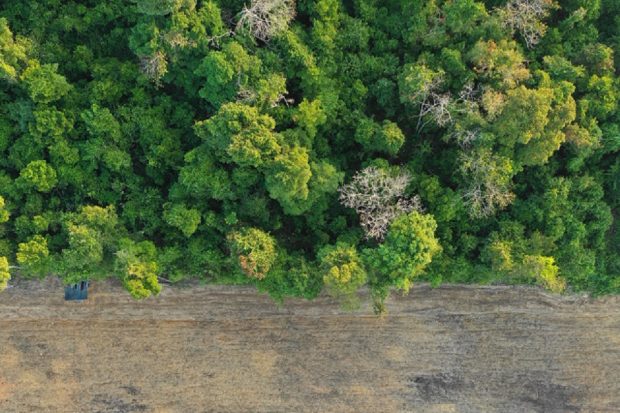
There was coverage this weekend in the Independent online of a joint article authored by Tony Juniper, Natural England chair, Emma Howard Boyd, Environment Agency chair, and Sir William Worsley, Forestry Commission chair.
The three chairs highlight important milestones which makes 2021 just so momentous for the environment: the Environment Bill receiving royal assent, progress towards a new agricultural system, the publication of government blueprints for peat restoration, tree planting and nature, and the UN Climate Conference in November.
The article also highlights the urgency for nature recovery in 2021, and outlines how the UK can be a world leader in improving the natural world and tackling climate change.
The three chairs said in the article:
The UK can emerge as a global leader in conserving and improving the natural world, but only if we deliver on all these promises. Our organisations will catalyse partnerships and act as pace-setters, helping the government meet its ambitions, and ensuring taxpayer money delivers high environmental, societal, and economic benefits.
5 comments
Comment by Sarah Johnson posted on
A ban on bottom-trawling of our seas including marine conservation areas must be included. This practice is the equivalent of bulldozing forests on land.
Comment by John Baxter posted on
If the EA could come out of its silo and talk to the Forestry Commission about topics like roughness coefficients and tree densitiesin river catchments which in my area lie in national parks; and if national park boundaries were ignored in river system management, we may start to make some sense of the data gathered over many years by EA .
When I proposed the slowing of the flow in the water catchment of Pickering Beck, I could not believe that NYM National Park did not talk to EA about water management because EA management ended at Newbridge where NYM National Park boundary started.....and the Forestry Commission and it’s management were seemingly not considered regarding management techniques in the catchment.
The introduced beavers will create plenty of work for all parties as they expand their range from Cropton forest and block road culverts and other drainage channels in the catchment area.
I wish well for the future, but it is time to get a collective and joined up grip of the situation.
Comment by Dave Stanley posted on
As a backdrop to this might I point out the following word count from their 25 Environment Plan as a indicator of DEFRA and Government priorities? Given that our problems primarily arise from fossil fuel use, degradation of soils, and failures to acknowledge the need for a switch to a system driven by solar, photosynthesis delivering carbon sequestration to our soils?
Solar - 0
Photosynthesis- 0
Wind - 0
Renewable- 0
Fossil- 3
Sequestration - 5
Coal - 6
Oil (palm) - once
Energy - 19
Ecosystems- 36
Soil - 39
Biodiversity - 48
Carbon 51
Growth - 55
Emissions- 68
Economic- 111
Capital - 114
Natural - 257
Comment by William Hughes-Games posted on
No mention on, arguably the most significant step toward restoring nature. Namely the establishment of beavers in all the head waters of the UK.
https://mtkass.blogspot.com/2020/03/cheap-tree-planting.html
https://mtkass.blogspot.com/2016/09/the-otter-river-beavers-of-england.html
https://mtkass.blogspot.com/2015/12/how-to-get-beaver-back.html
https://mtkass.blogspot.com/2014/06/the-tay-beavers-of-scotland.html
https://mtkass.blogspot.com/2011/05/erics-beavers.html
https://mtkass.blogspot.com/2007/07/canadian-beaver-pest-or-benefactor.html
Comment by Sophie posted on
How does HS2 fit into reversing the decline of nature?